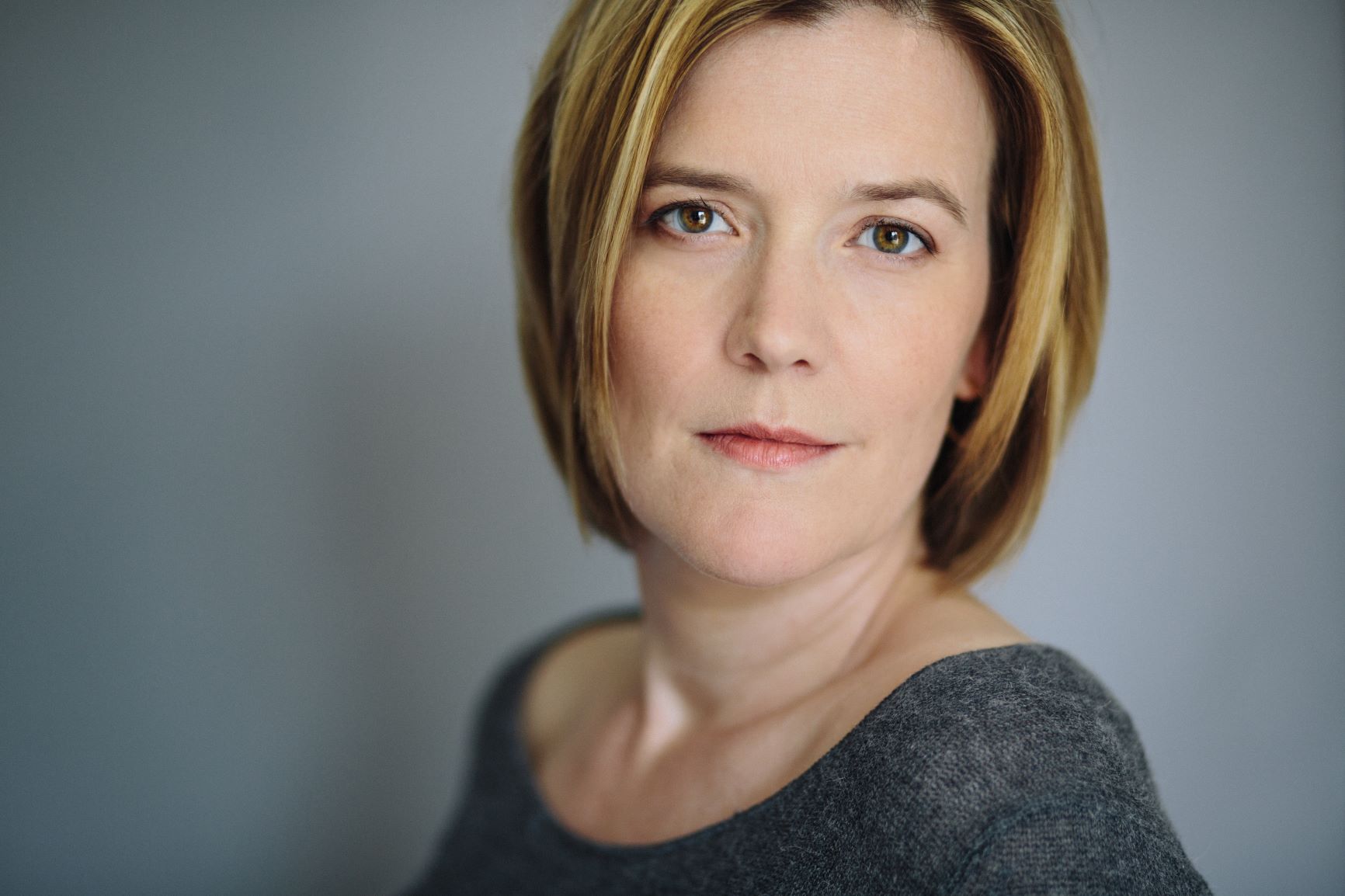Roy Barnett Recital Hall | Map
Tyler Duncan, baritone; Erika Switzer, fortepiano; Alessandro Juliani, narrator
Pre-concert chat at 6:45 PM with Erika Switzer and Matthew White
“Die Schöne Magelone” tells Ludwig Tieck’s medieval love story about Peter, a young knight from Provence, and the beautiful princess Magelone. Set by Johannes Brahms for baritone and piano, the fifteen songs are interwoven with unifying descriptive prose.
A collaboration with the Vancouver International Song Institute (VISI)
1890s fortepiano donated to the EMV Instrument Collection by Howard and Margaret Evans
Programme
Romanzen aus L. Tieck’s Magelone Op 33 (TEXTS AND TRANSLATIONS)
- Keinen hat es noch gereut
- Traun! Bogen und Pfeil
- Sind es Schmerzen sin des Freuden?
- Liebe kam aus fernen Landen
- So willst du des Armen
- Wie Soll ich die Freude
- War es dir?
- Wir müssen uns trennen
- Ruhe, Süssliebchen
- Verzweiflung So tönet denn, schäumende Wellen
- Wie schnell verschwindet
- Muss es eine Trennung geben?
- Sulima Geliebter, wo zaudert
- Wie froh und frisch
- Treue Liebe dauert lange
Programme Notes
Love came from far off lands…
Tonight you will hear fifteen romances for solo voice and piano, a cycle of songs exploring the multi-faceted experience of love. The music is dramatic, even operatic and onomatopoeic at times; it offers magnificent melodies and makes severe technical demands on the performers. It aims to transport the audience to an imaginary world where the sights and sounds of medieval Provence mingle with trend-setting nineteenth-century musical style, and the flesh and blood, sweat and inspiration of the live performers. Brahms represented the richness of this song-cycle in his choice of title: Romanzen aus L. Tieck’s Magelone, Op 33. The title “romance” had many meanings in the nineteenth century, all of which have significance for this collection. It could simply refer to a story about the heroism and adventure of imaginary characters told in a novel, to a medieval tale about chivalric love, or to a genre of simple strophic parlor songs.
No one has yet regretted getting on his horse in his fresh youth, to speed through the world…
As text for his song cycle, Brahms chose excerpts from the novel Die schöne Magelone by Ludwig Tieck (1773-1853). The novel tells of the exploits of the Provençal knight-errant, Peter, and his love for the beautiful maiden, Magelone. A famed German poet, dramatist, translator, and editor, Tieck’s writing was popular among nineteenth century composers and their audiences. Carl Maria von Weber, Franz Schubert, Fanny Hensel, Felix Mendelssohn, and Paul Hindemith all set excerpts of his work. Tieck also oversaw theatrical productions such as Shakespeare’s A Midsummer Night’s Dream for which Mendelssohn wrote incidental music. Die schöne Magelone combined prose with the passages of verse, which Brahms set to music. The Magelone Romances, therefore, do not tell a continuous story, but rather function as intermezzi for the novel. Such Lieder were popular in the nineteenth century, and sometimes even published at the end of the novel to which they belonged. Following a tradition begun by Brahms, tonight, the songs will be connected by narration that summarizes the plot of the novel.
Thus old age remains yet young, a beam of light in the dusk…
Brahms was drawn to Tieck’s writing in part because of a shared interest in medieval legends and fairy tales. Unimaginative collations of folklore held little attraction for either artist, rather, both found inspiration in retelling tales of the distant past for a contemporary audience and in reinventing ancient genres and writing styles. For example, working sketches of his songs clearly show that Brahms borrowed Baroque compositional techniques. He usually began by composing the vocal part and an equally strong bass line, indicating the harmonies only with figured bass symbols – short-hand notation that would have helped keyboard players of the Baroque to improvise an accompaniment for the song. When he finally worked out the details of the inner voices, he crafted a thoroughly up-to-date accompaniment that exploited all of the mid-nineteenth century piano’s capabilities. Modern pianists often consider the Magelone Romances troublesome because of the dense piano textures and the danger of overwhelming the singer. Tonight you will hear a piano built by Erard, a builder of whom Brahms was very fond. Unlike modern Steinway pianos in which the bass strings cross over the treble strings, focusing the sound in the centre of the instrument and producing a louder, denser timbre, the strings of the Erard all run parallel to one another, lending greater clarity to the sound.
An avid reader, Brahms was extremely attentive to reflecting the mood and substance of the text in both the vocal line and the accompaniment of his songs. He once described his process for setting poetry to a friend. It began with choosing poetry that could be enhanced by a musical setting, and that affected him spontaneously, but not so strongly that it destroyed his ability to remain objective. He would then proceed to recite the poem aloud until he became so familiar with it that the musical meter, rhythm, and form seemed inevitable. The resulting melodies are fluent and natural, made of long arching lines, and with turns of phrase that often resemble folk music.
In the dear, darkening distance, there call the songs of home…
The title “romance” referred both to literary and musical genres. Typically musical romances were strophic love songs, accessible to amateur performers, who would perform them for friends gathered around the parlour piano. Brahms wrote his Magalone Romances for Julius Stockhausen, a baritone famous for bringing Lieder out of the private salon and into the concert hall. He gave the first public performance of Franz Schubert’s Die schöne Müllerin, for example. Contemporary commentator, Sir George Grove, wrote about Stockhausen that “his delivery of opera and oratorio music… was superb in taste, feeling and execution, but it was the Lieder of Schubert and Schumann that most particularly suited him, and these he delivered in a truly remarkable way. The rich beauty of the voice, the nobility of the style, the perfect phrasing, the intimate sympathy, and, not least, the intelligible way in which the words were given – in itself one of his greatest claims to distinction – all combined to make his singing of songs a wonderful event.” Stockhausen’s abilities allowed Brahms to combine the intimacy of chamber music and romantic poetry with the drama of operatic singing and romance literature in a song cycle that has continued to inspire performers and entrance audiences for generations.
Christina Hutten

Tyler Duncan, baritone
Sought-after baritone Tyler Duncan appears regularly on major concert stages around the world. Recent critics have called his performances “eloquent,” “charismatic,” and “stunning,” and praised his “refined, burnished voice” and “impeccable phrasing.” Tyler has recently appeared in concerts with the Minnesota Orchestra, the Toronto Symphony, the Kansas City Symphony, the New York Philharmonic, and at the Wigmore Hall.
Also accomplished on the opera stage, Tyler has appeared at the Metropolitan Opera as Prince Yamadori in Puccini’s Madama Butterfly under Karel Chichon, among many other Met Opera roles. Other recent roles include Morales in Bizet’s Carmen under Seiji Ozawa, and appearances in the Spoleto Festival as the Speaker in Mozart’s The Magic Flute. Duncan is also passionate about new opera; recent roles include Raymond in Nic Gotham’s Nigredo Hotel with City Opera Vancouver, and in the world premiere of Jonathan Berger’s Leonardo at New York’s 92nd Street Y.
Mr. Duncan also performs as a duo with pianist Erika Switzer, celebrating songs from the Romantic period as well as the work of living composers. Together the pair have premiered dozens of new compositions.
Tyler’s recordings include the newly released album English Songs à la française with Erika Switzer, the Juno Award winning Vaughan-Williams Serenade to Music with Peter Ounjian and the Toronto Symphony, Earthquakes and Islands: an album of songs by Andrew Staniland with texts by Robin Richardson, the title role in John Blow’s Venus and Adonis with Boston Early Music Festival, J.S. Bach’s St. John Passion with the Portland Baroque Orchestra, Purcell works and Carissimi’s Jephte with Les Voix Baroque, and a DVD of Handel’s Messiah with Kent Nagano and the Montreal Symphony Orchestra. His singing has been recognized internationally with numerous awards, including Grammy and Juno nominations and prizes from the Naumburg, London’s Wigmore Hall, and Munich’s ARD competitions.
Originally from British Columbia, Canada, Mr. Duncan resides in New York’s beautiful Hudson Valley. www.tylerduncan.ca

Erika Switzer, fortepiano
Canadian collaborative pianist Erika Switzer made her American debut at the Kennedy Center in 2003. Since that time, she has established herself as the frequent partner of several notable vocalists, including baritone Tyler Duncan, tenor Colin Balzer and soprano Martha Guth.
Ms. Switzer has performed recitals at New York’s Frick Collection, Rockefeller University, Alice Tully Hall, Carnegie Hall (Weill Hall), and for the 5 Boroughs Music Festival. In Europe, she has performed as a guest of Pro Musicis at Paris’ Salle Cortot and for the Poulenc Academy at the
L’Hôtel de ville de Tours. Other European performances include appearances at the Göppingen Meisterkonzerte, the New Discoveries series at the Baden-Baden Festspiele, and the Winners & Masters series in Munich. In her native Canada, she has performed at the Chamber Music Festivals of Montreal, Ottawa and Vancouver, and for presenters including Music on Main, Debut Atlantic, Prairie Debut, Roy Thomson Hall Presents: Canadian Voices, and the André Turp Society.
Ms. Switzer has been recorded by the CBC, Dutch Radio (Radio 4), SWR and the Bayerische Rundfunk in Germany, WQXR New York and WGBH Boston. Together with Martha Guth, Erika is co-creator of ͞Sparks & Wiry Cries: The Art Song Magazine,͟ which can be found at www.sparksandwirycries.com. Her recording of Brahms’ Liebeslieder Waltzes, on the Sparks & Wiry Cries label, is available for purchase on iTunes.
Ms. Switzer is on the music faculty at Bard College and the Bard Conservatory of Music. She is a founding faculty member of the Vancouver International Song Institute and co-director of its Contemporary Performance Studies program.
Erika Switzer won First Prize for best pianist at the Wigmore Hall International Song Competition and the Best Pianist award at the Robert Schumann International Vocal Competition. Following seven years in Germany, Ms. Switzer recently completed her doctorate at the Juilliard School of Music.
“Erika Switzer is one of the best collaborative pianists I have ever heard; her sound is deep, her interpretation intelligent, refined, and captivating.” – Le Monde
“… precise and lucid” – New York Times

Alessandro Juliani, narrator
Canadian actor and singer, Alessandro Juliani, is best known for his roles as Tactical Officer Lieutenant Felix Gaeta in Battlestar Galacticaand as Dr. Emil Hamilton in Smallville. He is also the voice of Gambit in X-Men Evolution and of character “L” in the English version of the anime series Death Note for which he won the 2008 Society for the Promotion of Japanese Animation Award, Best Voice Actor (English). In addition to his film and television work, Juliani appears frequently on stage in Vancouver at the Vancouver Playhouse, the Vancouver Opera, and Bard on the Beach, and further afield at the Aldeburgh Festival in England and the Orlando Shakespeare Festival.
He has played the title role in Shakespeare’s Henry V at the Bard on the Beach, and last summer he worked together with his wife, Meg Roe, to compose the musical score for Bard on the Beach’s production of A Midsummer Night’s Dream. He also crafted the music for Roe’s staging of The Tempest. Alessandro Juliani is the son of John Juliani, a producer, actor, and writer, and of Donna Wong-Juliani, founder of Opera Breve. He graduated from McGill University with a Bachelor of Music in Vocal Performance.


